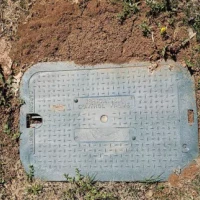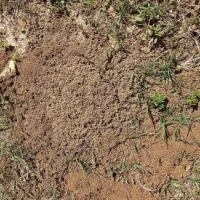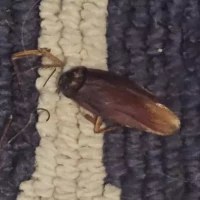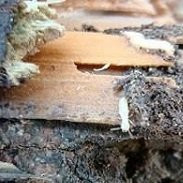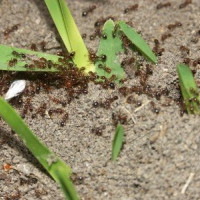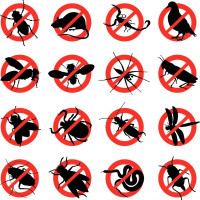How To Destroy An Ant Colony
A Comprehensive Guide to Stop Ants
Ant infestations can turn your home into a frustrating battleground, with tiny invaders marching across countertops, sneaking into pantries, and even biting if they're aggressive species like fire ants. If you've ever dealt with ants in the Dallas-Fort Worth area, you know how persistent they can be. But here's the good news: simply swatting away the visible ants isn't enough. To truly win the war, you need to strike at the source, the ant colony itself. In this guide from Prize Pest Control, we'll explain why targeting the colony is crucial, how ants find their way into your home, and practical steps to prevent and eliminate these pests for good. Whether you're facing a minor trail or a full blown invasion, understanding the colony's role is key to effective control.
Why Targeting the Ant Colony is Essential
Ants are not solitary creatures; they operate as a highly organized society centered around their colony. This underground or hidden network is where the real problem lies, and destroying it is the most reliable way to end an infestation. Let's break down the key reasons why focusing on the colony should be your top priority:
1. Eliminating the Root Cause
At the core of every ant colony is the queen, a prolific egg layer who can produce thousands of offspring in her lifetime. Worker ants, the ones you see foraging for food, are just extensions of this reproductive machine. By destroying the colony, you cut off the supply line at its source. Without the queen and her supporting cast, the infestation cycle breaks, preventing new generations from emerging and taking over your space. Think of it like pulling a weed by its roots instead of just trimming the leaves; anything less allows the problem to regrow.
2. Comprehensive Ant Control
It is tempting to focus only on the ants you can see trailing along your kitchen floor or baseboards. Spraying or baiting these foragers might give temporary relief, but it's like treating symptoms without addressing the disease. The colony often hides in walls, under slabs, or in your yard, sending out scouts to replace the ones you've eliminated. A colony targeted approach ensures you neutralize both the visible pests and the hidden reserves, leading to a more thorough and satisfying resolution. This method is especially vital in regions like DFW, where soil conditions and climate make colonies resilient and hard to spot.
3. Long Term Ant Prevention
Once the colony is gone, the risk of reinfestation drops dramatically. With no queen to rebuild the population and no workers to forage, your home becomes far less appealing to wandering ants. This proactive strategy not only solves the current issue but also builds a barrier against future problems. Homeowners who invest in colony destruction often enjoy months or even years of peace, reducing the stress and disruption that comes with recurring pests. Plus, in a humid area like Dallas-Fort Worth, where ants thrive year-round, this long term mindset can save you from seasonal headaches.
4. Conserving Resources and Saving Money
Repeatedly treating surface ants can feel like an endless cycle of sprays, traps, and cleanups, draining your time, energy, and wallet. By zeroing in on the colony from the start, you minimize the need for ongoing interventions. Professional services, like those from Prize Pest Control, use targeted baits and treatments that lure ants back to the nest, delivering poison directly to the heart of the problem. This efficient method reduces chemical usage, lowers costs over time, and frees you up to focus on enjoying your home rather than battling bugs.
In summary, destroying the ant colony isn't an optional step, it's the foundation of smart, sustainable pest management. Skipping it might offer quick fixes, but for lasting results that protect your property and family, going after the source is non negotiable.
Fire Ant Control in the Dallas Fort Worth Area
Fire ants are a notorious nuisance in the DFW metroplex, known for their painful stings and aggressive behavior. These invaders often slip into homes through tiny exterior cracks, weep holes in brick walls, or gaps around foundations. Once inside, they forage along carpet edges, baseboards, and even electrical outlets, seeking warmth and moisture. In severe cases, fire ants may build nests within wall voids, under bathroom tiles, or in crawl spaces, turning a simple entry into a hidden hazard.
Early detection is critical in our region, where fire ants can form large mounds in yards during warmer months. Watch for small, volcano-shaped soil piles outdoors or unusual activity indoors, especially after rain. If left unchecked, a single colony can expand rapidly, posing risks to pets, children, and anyone with allergies.
How Ants Enter Your Home
While fire ants have their specific tricks, ants in general are masters of infiltration. They exploit even the smallest openings to access food, water, and shelter. Kitchens and bathrooms are prime targets due to spills, crumbs, and humidity, but no room is truly safe. Here's a closer look at the most common entry points:
- Cracks Around Windows and Doors: Weatherstripping wears out over time, creating gaps that ants can squeeze through. Check for daylight visible around frames or drafts as telltale signs.
- Foundation Gaps: Settling soil or poor construction can leave cracks at the base of your home, providing direct access from the yard to your interior.
- Exterior Weep Holes: These drainage points in brick exteriors are essential for moisture control but often become ant highways if not screened.
- Unsealed Vents and Utility Openings: Dryer vents, plumbing pipes, and cable entry points are frequently overlooked, allowing ants to follow utility lines right inside.
By identifying these weak spots, you can take proactive steps to fortify your home. Regular inspections, especially during Texas's hot summers, can catch issues before they escalate.
Practical Prevention Tips
Prevention is always better than cure when it comes to ants. Start by sealing entry points with caulk, weatherstripping, or mesh screens. Maintain a clean environment by wiping down surfaces, storing food in airtight containers, and fixing leaks promptly to eliminate water sources. Outdoors, trim vegetation away from your home's exterior and avoid mulch piles near foundations, as they can harbor colonies.
For colony destruction, DIY options like boric acid baits can work for small issues, but they require patience and precision to avoid scattering the ants. Professional treatments, however, use advanced formulations that ants carry back to the nest, ensuring total eradication without the guesswork.
Trust Prize Pest Control
At Prize Pest Control, we specialize in ant colony elimination tailored to the unique challenges of the greater Dallas Fort Worth area. Our experienced technicians use safe, effective methods to locate and destroy nests, providing you with a pest-free home you can count on. Don't let ants take over, Call us today at 469-780-4602 for a free ant inspection and estimate. We proudly serve the entire DFW metroplex, from Dallas to Fort Worth and beyond, helping families like yours reclaim their spaces from unwanted intruders.

